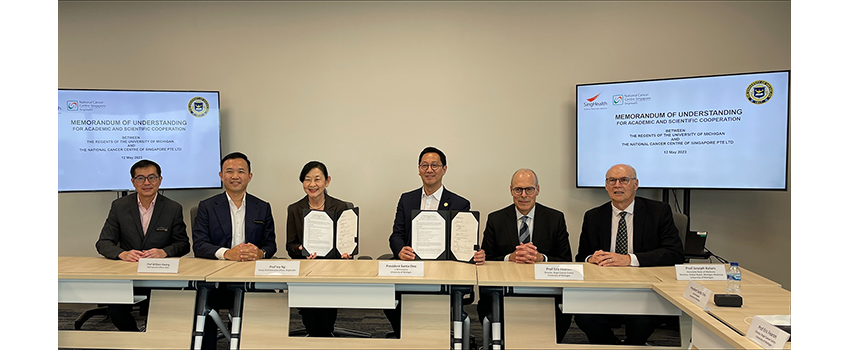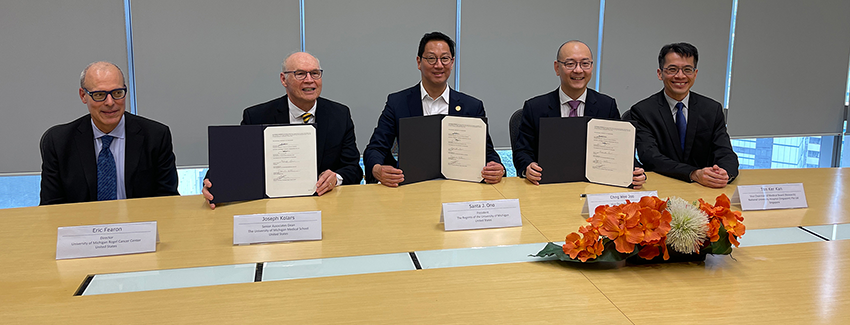U-M to partner with Singapore hospital, cancer center
Media contact: Nicole Fawcett, 734-764-2220 | Patients may contact Cancer AnswerLine™ 800-865-1125
Institutional partnerships will foster international collaboration around research, education, cancer care and outcomes

ANN ARBOR, Michigan — The University of Michigan is developing two academic and scientific partnerships in Singapore that are expected to create opportunities for joint research, trainee and student exchange, and more.
One of the partnerships is with the National University of Singapore’s Cancer Science Institute and the National University Cancer Institute, Singapore. The other partnership is between the U-M Rogel Cancer Center and the National Cancer Centre Singapore.
"We are especially excited about the range and nature of innovative collaboration opportunities for Rogel Cancer Center members with expert colleagues at the National University of Singapore and National Cancer Centre Singapore,” said Eric Fearon, M.D., Ph.D., director of the Rogel Cancer Center.
"The new collaborations will allow Rogel to build on its distinctive research and training strengths across the cancer research continuum, with potential for accelerated growth in areas where Rogel and the Singapore institutions have obvious potential for synergies."
Fearon was part of a delegation from U-M that included President Santa Ono, Ph.D., and Joseph Kolars, M.D., senior associate dean for education and global initiatives at the U-M Medical School.
Founded in 1905, the National University of Singapore comprises 16 colleges and schools as well as 35 research institutes and centers across three campuses. Its medical school is considered the region’s best, and its affiliated National University Hospital is one of the top public and not-for-profit hospitals in Southeast Asia to provide care for adults, women and children under one roof.

The National University Cancer Institute, Singapore is a national specialist center under the National University Health System. It is the only public cancer center in Singapore that treats both pediatric and adult cancers in one facility. The institute’s cancer services span across several acute hospitals, including the National University Hospital.
The National Cancer Centre Singapore is a leading national and regional tertiary cancer center and is part of the SingHealth Duke-NUS Academic Medical Centre. NCCS attends to the majority of cancer cases in Singapore’s public health care sector and houses dedicated facilities for advanced translational research and education to advance the understanding of cancer and develop innovative ways to improve patient outcomes.
“This unique collaboration connects our U-M and Michigan Medicine community with Singapore’s most prestigious public research university and the leading cancer center in Southeast Asia,” Kolars said. “Our complementary strengths and shared values herald a meaningful partnership that will drive innovation in health care and beyond.”
Initial projects and efforts will emphasize access to cancer screening, prevention and early detection enhancements to reduce the burden of cancer and improve cancer outcomes and quality of life. Among other impacts, Fearon sees the partnership yielding new insights into the origins of cancer and how genetic factors interact with dietary, lifestyle and environmental exposures in cancer development and patient outcomes.
